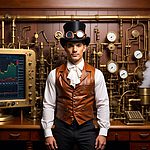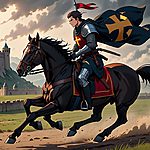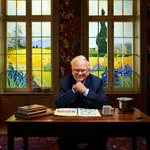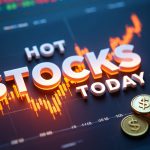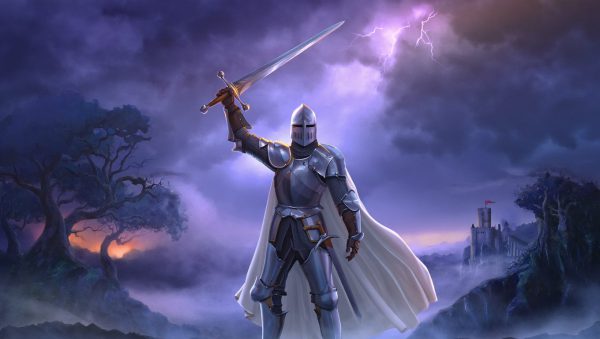
The Trap of the Herd: How Fear-Driven Markets Destroy Wealth
Apr 14, 2025
Picture this: a crowded theater, smoke rising, people screaming. The exit sign glows faintly, but the stampede blinds everyone to its direction. This is the market in chaos—a collective panic, a herd driven by fear, trampling value into dust. The greatest destroyer of wealth isn’t a crash, a recession, or a bear market. It’s the inability to think independently amidst the noise. The absence of clarity when fear takes control. The failure to act when opportunity hides in plain sight.
In every economic collapse, the same pattern repeats. The herd sells in a frenzy, driven by irrational fear, while a few contrarians step quietly into the chaos, buying what everyone else discards. This is not luck; it’s not even genius. It’s discipline. It’s clarity. It’s the ability to see markets for what they are—a battleground of psychology and opportunity. An independent thinking example in action is not just a theoretical ideal. It’s the tool that separates winners from those who are consumed by panic.
If you follow the crowd, the crowd will lead you to ruin. But if you learn to step away from collective hysteria, to think for yourself when the market screams otherwise, you will unlock a power that few ever achieve. Independent thinking is not just a skill—it’s a weapon.
The Anatomy of Market Panic: How Fear Breeds Destruction
Why do markets panic? It’s not because of numbers on a screen. It’s not because of earnings reports or GDP forecasts. Markets panic because people panic. Fear is contagious. It spreads like a virus, amplifying itself through social networks, media headlines, and groupthink. One person sells in fear, then another, then another, until the entire market becomes a cascading spiral of irrationality.
This is not new. History is littered with examples of fear-driven collapses. Take the 2008 financial crisis. When Lehman Brothers fell, the herd stampeded out of the market, dumping assets at fire-sale prices. But those who thought independently, who saw through the hysteria, quietly amassed fortunes. Investors like John Paulson, who bet against the housing market when everyone else believed in its invincibility, are independent-thinking examples that illustrate the power of stepping outside the herd.
Fear blinds you to opportunity. It forces you to focus on short-term survival rather than long-term growth. But those who understand the psychology of panic—those who can step back, breathe, and think—can turn fear into profit. Market panic isn’t the end. It’s a beginning, a moment of creation for those bold enough to seize it.
Contrarian Mastery: Thinking Differently When It Matters Most
Contrarians don’t just think differently—they act differently. They see what others miss, or more accurately, what others refuse to see. When fear consumes the market, contrarians see opportunity. When greed inflates bubbles, they prepare for the inevitable collapse. Independent thinking isn’t just about resisting the herd; it’s about anticipating the herd’s next move before it even happens.
Take Warren Buffett’s legendary mantra: “Be fearful when others are greedy, and greedy when others are fearful.” This is not a cliché—it’s a strategy. Think about Buffett’s moves during the 2008 crisis. While most investors were fleeing financial stocks, Buffett invested billions into Goldman Sachs and Bank of America, securing favorable terms that would later yield massive returns. This wasn’t luck. It was the result of disciplined, independent thought, paired with bold action.
Jesse Livermore, another legendary figure, offers another independent thinking example. During the Great Depression, Livermore shorted the market while the majority clung to hope that things would recover. He understood that the market’s psychology was broken, and he positioned himself accordingly. The result? He became one of the richest men in the world at a time when fortunes were evaporating.
Contrarian mastery is not about being a rebel for the sake of rebellion. It’s about seeing the truth when others are blinded by emotion. It’s about thinking clearly, acting decisively, and thriving in moments of chaos.
Fear-Exploiting Strategies: Turning Volatility into Profit
Fear creates volatility, and volatility creates opportunity. The question is: do you have the discipline to exploit it? One powerful strategy during fear-driven selloffs is selling put options. When markets panic, option premiums skyrocket as investors scramble for protection. By selling puts during these spikes, you collect inflated premiums, effectively getting paid to take on calculated risk.
For example, imagine a blue-chip stock trading at $100, but fear has driven its price down to $80. Investors flood the options market, buying puts to protect against further losses. By selling those puts, you can collect a significant premium, effectively positioning yourself to buy the stock at a discount if the price drops further. If the stock stabilizes or recovers, you keep the premium without ever purchasing the stock.
The next step? Reinvest those premiums into long-term opportunities, such as LEAPS (Long-Term Equity Anticipation Securities). LEAPS provide leverage without the same level of risk as short-term options, allowing you to multiply your returns on recovery plays. This combination of selling puts and reinvesting premiums is not just a strategy—it’s a way of thinking. It’s an independent thinking example in action, leveraging fear to build wealth when others are paralyzed by it.
Disciplined Boldness: The Key to Independent Thinking
Independent thinking is useless without discipline. Boldness without discipline is recklessness. The greatest investors don’t just take risks—they take calculated risks. They plan meticulously, analyze rigorously, and act decisively. Discipline is what separates the contrarian from the gambler, the visionary from the fool.
Consider Ray Dalio, the founder of Bridgewater Associates. Dalio’s approach to investing is built on radical transparency and rigorous analysis. He doesn’t chase trends or follow the herd. Instead, he builds systems that account for multiple scenarios, ensuring that his portfolio thrives in both good times and bad. Discipline is at the core of his success, allowing him to think independently without succumbing to emotional impulses.
Discipline also means knowing when to step back. Not every opportunity is worth pursuing. Sometimes, the boldest move is patience. Waiting for the right moment, the right conditions, the right setup. The market rewards those who are bold, but only when that boldness is rooted in clarity and preparation.
Visionary Empowerment: Escaping the Herd for Good
Independent thinking is more than a financial strategy—it’s a philosophy, a way of life. It’s about escaping the herd mentality, not just in markets, but in every aspect of decision-making. It’s about reclaiming your autonomy, your clarity, your ability to act with purpose and conviction.
When you escape the herd, you unlock a new level of empowerment. You see the world not as a chaotic, unpredictable mess, but as a system of interconnected forces, patterns, and opportunities. You learn to embrace uncertainty, to thrive in volatility, to see risk not as a threat but as a gateway to reward. Independent thinking isn’t just about making better investments—it’s about living with greater confidence, clarity, and purpose.
The market is a battlefield, and the herd is its cannon fodder. But those who think independently, who act with discipline, who harness fear rather than succumbing to it—they are the ones who rise above. They are the ones who win.
The Final Word: Independent Thinking as the Ultimate Edge
In the end, the market doesn’t reward the smartest or the fastest. It rewards the bold, the disciplined, the independent. It rewards those who can think clearly when others panic, who can act decisively when others hesitate, who can see opportunity when others see chaos.
Independent thinking is not a gift—it’s a choice. A practice. A commitment to seeing the world as it is, not as the herd perceives it. It’s about rejecting fear, embracing discipline, and acting with purpose. It’s about being the one who steps through the chaos unscathed, building wealth and confidence while others flounder.
The herd will always panic. The market will always oscillate between fear and greed. But you don’t have to follow. You can think independently. You can act boldly. You can win.


